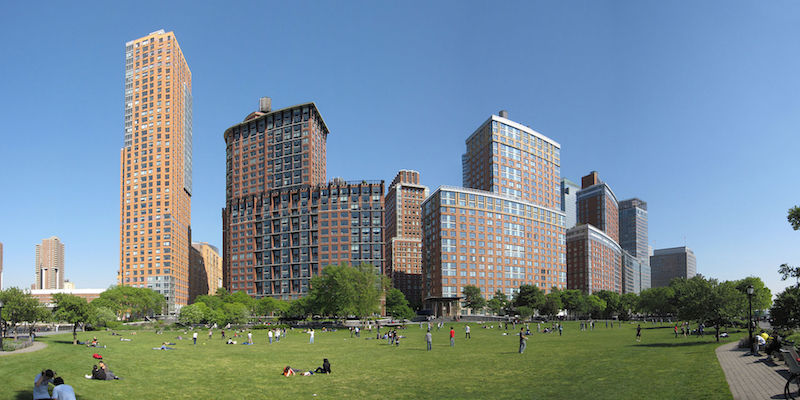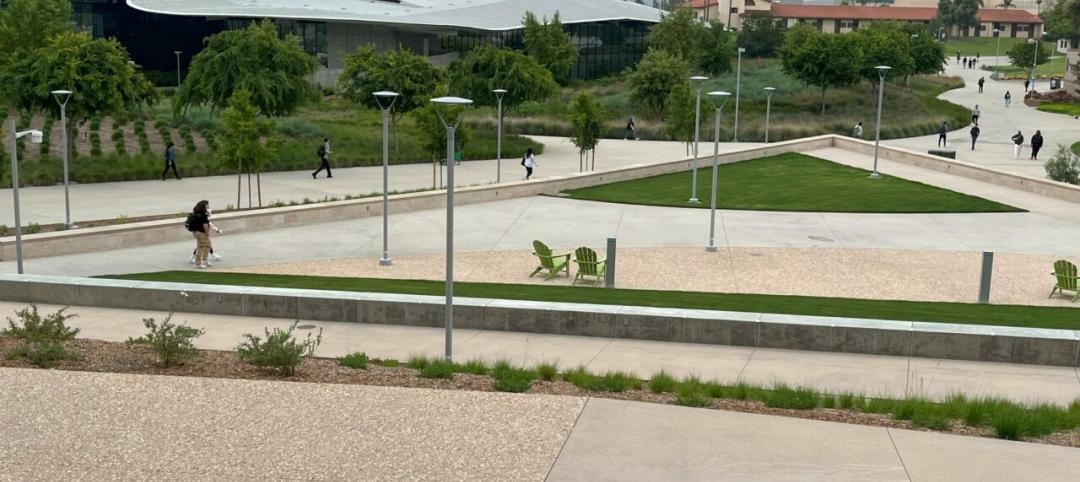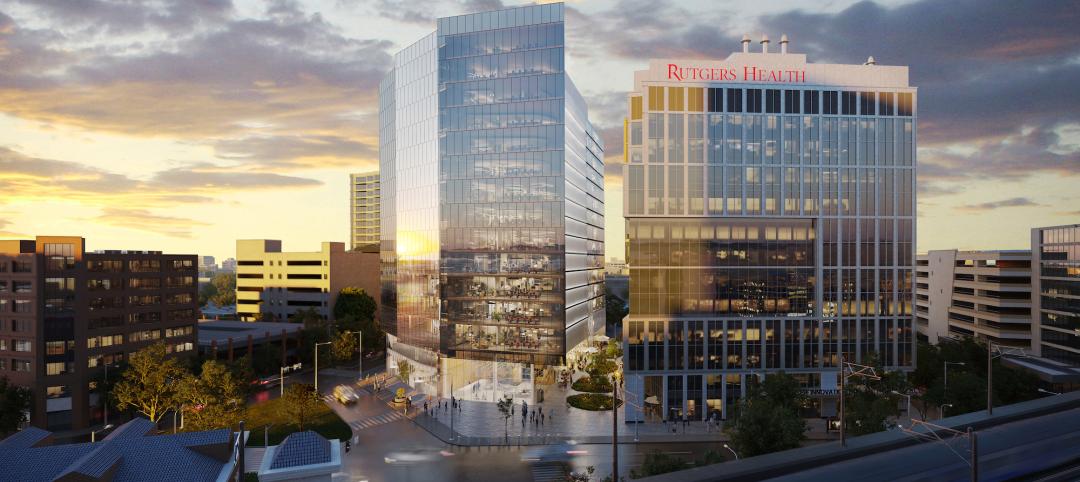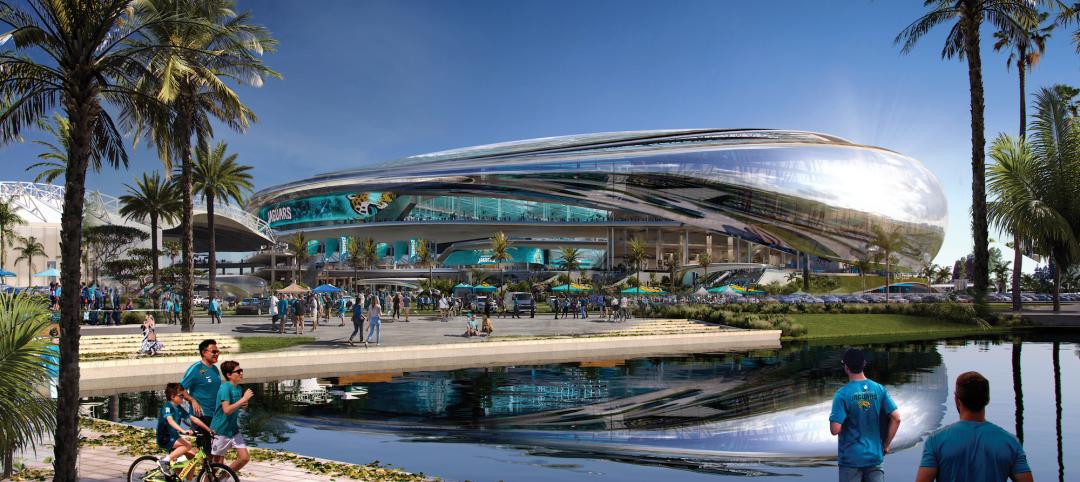The skyrocketing cost of housing in major U.S. cities is inspiring new concepts to make apartment living more affordable for Millennials, GenXers, and Boomers.
TOP 110 MULTIFAMILY ARCHITECTURE FIRMS
Rank, Firm, 2015 Revenue
1. Perkins Eastman $50,700,000
2. CallisonRTKL $40,466,000
3. Solomon Cordwell Buenz $38,438,935
4. Skidmore, Owings & Merrill $27,342,575
5. Niles Bolton Associates $27,300,000
6. NORR $24,325,290
7. Stantec $24,249,806
8. Robert A.M. Stern Architects $22,990,000
9. WDG $22,938,000
10. Harley Ellis Devereaux $18,300,000
TOP 80 MULTIFAMILY CONSTRUCTION FIRMS
Rank, Firm, 2015 Revenue
1. Lendlease $2,046,256,000
2. Suffolk Construction Co. $1,197,566,204
3. Clark Group $996,208,028
4. AECOM $942,100,000
5. Balfour Beatty US $818,343,386
6. Turner Construction Co. $691,436,732
7. Plaza Construction $600,000,000
8. Hunter Roberts Construction Group $569,747,283
9. Swinerton Inc. $549,000,000
10. Andersen Construction $454,800,000
TOP 50 MULTIFAMILY ENGINEERING FIRMS
Rank, Firm, 2015 Revenue
1. Jacobs $203,161,333
2. AECOM $200,900,000
3. Arup $168,783,060
4. Thornton Tomasetti $67,382,221
5. Syska Hennessy Group $32,420,857
6. Burns & McDonnell $24,341,832
7. Vanderweil Engineers $23,508,800
8. Smith Seckman Reid $20,189,000
9. DeSimone Consulting Engineers $19,799,641
10. Dewberry $19,159,460
MULTIFAMILY GIANTS SPONSORED BY:
“Affordable housing is the major concern in cities today,” says Brian Ward, AIA, LEED AP, Director of Design, Niles Bolton Associates. Ward predicts cities will be gearing up to legislate housing affordability into zoning codes. He says hard-pressed municipalities need to establish “an honest dialogue” among city leaders, the lending community, designers, and real estate interests as the way to achieve solutions that sustain growth while providing housing opportunities for the middle-class.
To address the affordability problem and attract tenants, owners and developers are experimenting with smaller and smaller units, amenity-rich environments, and “co-living” concepts.
“We’re seeing the evolution of micro-units into what some are unceremoniously referring to as adult dorm rooms, but the impact on the overall multifamily residential market is undeniable,” says Marc Fairbrother, AIA, LEED GA, NCARB, Vice President at CallisonRTKL.
This concept has reached a new level with the recent opening of WeLive—furnished, flexible, small units with large communal areas and social amenities. They are being introduced by co-working space provider WeWork in the New York City and Washington, D.C., metros.
Fairbrother says the current housing paradigm is aimed at adapting space to better fit user needs and facilitating social connection. “Many of our projects are about incorporating residential more fluidly into the urban fabric, with connectivity to retail, dining, and entertainment,” he says. “It’s also a more sustainable approach to achieving density in urban areas.”
onward and upward with AMENITY SPACES
Individual units may be shrinking, but specialty amenity spaces are flourishing.
The new Millennium on LaSalle will offer a musical practice space with a recording booth as just one of its planned unique spaces. The 216-unit apartment tower, an adaptive reuse of a 14-story Jenney & Murdie office tower (completed in 1902) in the Chicago Loop, is being designed by FitzGerald Associates Architects. The conversion includes the addition of a top-floor amenity level and landscaped roof deck, a basement that incorporates a large screening room, two console game media rooms, a computer lounge, and a dog washroom.
“Everyone is trying to find that next appeal, whether it’s a maker space, a bike lounge, or a place to play and record your musical instrument,” says Mike DeRouin, CSI, CCCA, the design firm’s President. “But there’s another segment of the population that just wants to live in a quiet building. We’ve also got several clients that are building small boutique apartment buildings with limited amenities that are close to transit.”
Because convenience and simplicity are increasingly valued by urban dwellers, transit-oriented developments may be catching on. “People want to live close to mass transit, where they work and where they play, without relying on a car, and they’re willing to live in a smaller apartment to do that,” says Stuart Lachs, AIA, LEED AP, Principal, Perkins Eastman.
TODs are also cutting back voluntarily on their parking spaces. “In some cases, we are designing less than one parking space per dwelling unit,” says Lachs. “Municipalities used to set a minimum number of parking spaces; now they are setting maximums.”
ENLIVENING SPORTS AND ENTERTAINMENT DISTRICTS
Victory Park, a $3 billion residential and commercial district northwest of downtown Dallas, is capitalizing on the opportunity to leverage one of the nation’s most popular sports and entertainment venues. Anchored by American Airlines Center, home to the NBA Dallas Mavericks and the NHL Dallas Stars, the 75-acre development encompasses more than a thousand residences. Four additional high-rise residential buildings under construction will add nearly 2,000 upscale apartments to the district by 2018.
“We’ve realized that the areas surrounding the facilities that house our favorite teams and performers need to function on multiple levels to truly be successful,” says Tom Brink, AIA, LEED AP, Vice President, CallisonRTKL. “We need to take these developments from ‘game day’ to ‘every day’ destinations.” Multifamily residential can help achieve that goal, he says.
In Los Angeles, three luxury residential towers rising in the heart of downtown’s South Park neighborhood seek to transform the city from an in-and-out destination to a permanent dwelling place. Located across from Staples Center and the LA Live entertainment complex, Oceanwide Plaza will house 504 condominiums, a 183-key hotel, and event spaces. The trio of towers—slated for completion in late 2018—rise from a 200,000-sf retail podium surrounded by a large lawn, children’s playground, pool, and running track.
CallisonRTKL’s Brink notes that our economy and culture are heavily influenced by the sports and entertainment industry. To make residential developments based on sports and entertainment feel like home, he says, “We have to address everything from logistical concerns, such as careful integration of parking and security, to the livability and authenticity of the community.”
RETURN TO THE GIANTS 300 LANDING PAGE
Related Stories
Multifamily Housing | Jun 28, 2023
Sutton Tower, an 80-story multifamily development, completes construction in Manhattan’s Midtown East
In Manhattan’s Midtown East, the construction of Sutton Tower, an 80-story residential building, has been completed. Located in the Sutton Place neighborhood, the tower offers 120 for-sale residences, with the first move-ins scheduled for this summer. The project was designed by Thomas Juul-Hansen and developed by Gamma Real Estate and JVP Management. Lendlease, the general contractor, started construction in 2018.
Architects | Jun 27, 2023
Why architects need to think like developers, with JZA Architecture's Jeff Zbikowski
Jeff Zbikowski, Principal and Founder of Los Angeles-based JZA Architecture, discusses the benefits of having a developer’s mindset when working with clients, and why architecture firms lose out when they don’t have a thorough understanding of real estate regulations and challenges.
Apartments | Jun 27, 2023
Average U.S. apartment rent reached all-time high in May, at $1,716
Multifamily rents continued to increase through the first half of 2023, despite challenges for the sector and continuing economic uncertainty. But job growth has remained robust and new households keep forming, creating apartment demand and ongoing rent growth. The average U.S. apartment rent reached an all-time high of $1,716 in May.
Apartments | Jun 27, 2023
Dallas high-rise multifamily tower is first in state to receive WELL Gold certification
HALL Arts Residences, 28-story luxury residential high-rise in the Dallas Arts District, recently became the first high-rise multifamily tower in Texas to receive WELL Gold Certification, a designation issued by the International WELL Building Institute. The HKS-designed condominium tower was designed with numerous wellness details.
University Buildings | Jun 26, 2023
Addition by subtraction: The value of open space on higher education campuses
Creating a meaningful academic and student life experience on university and college campuses does not always mean adding a new building. A new or resurrected campus quad, recreational fields, gardens, and other greenspaces can tie a campus together, writes Sean Rosebrugh, AIA, LEED AP, HMC Architects' Higher Education Practice Leader.
Standards | Jun 26, 2023
New Wi-Fi standard boosts indoor navigation, tracking accuracy in buildings
The recently released Wi-Fi standard, IEEE 802.11az enables more refined and accurate indoor location capabilities. As technology manufacturers incorporate the new standard in various devices, it will enable buildings, including malls, arenas, and stadiums, to provide new wayfinding and tracking features.
Green | Jun 26, 2023
Federal government will spend $30 million on novel green building technologies
The U.S. General Services Administration (GSA), and the U.S. Department of Energy (DOE) will invest $30 million from the Inflation Reduction Act to increase the sustainability of federal buildings by testing novel technologies. The vehicle for that effort, the Green Proving Ground (GPG) program, will invest in American-made technologies to help increase federal electric vehicle supply equipment, protect air quality, reduce climate pollution, and enhance building performance.
Office Buildings | Jun 26, 2023
Electric vehicle chargers are top priority for corporate office renters
Businesses that rent office space view electric vehicle (EV) charging stations as a top priority. More than 40% of companies in the Americas and EMEA (Europe, the Middle East and Africa) are looking to include EV charging stations in future leases, according to JLL’s 2023 Responsible Real Estate study.
Laboratories | Jun 23, 2023
A New Jersey development represents the state’s largest-ever investment in life sciences and medical education
In New Brunswick, N.J., a life sciences development that’s now underway aims to bring together academics and researchers to work, learn, and experiment under one roof. HELIX Health + Life Science Exchange is an innovation district under development on a four-acre downtown site. At $731 million, HELIX, which will be built in three phases, represents New Jersey’s largest-ever investment in life sciences and medical education, according to a press statement.
Sports and Recreational Facilities | Jun 22, 2023
NFL's Jacksonville Jaguars release conceptual designs for ‘stadium of the future’
Designed by HOK, the Stadium of the Future intends to meet the evolving needs of all stadium stakeholders—which include the Jaguars, the annual Florida-Georgia college football game, the TaxSlayer.com Gator Bowl, international sporting events, music festivals and tours, and the thousands of fans and guests who attend each event.


















